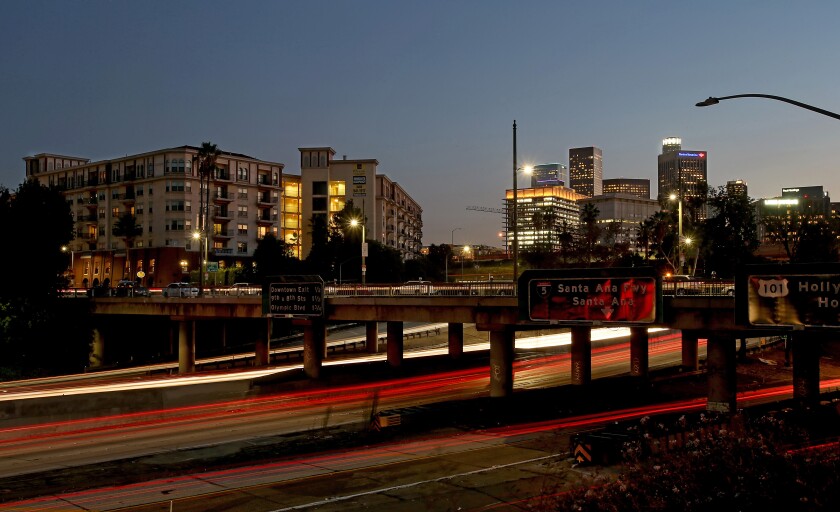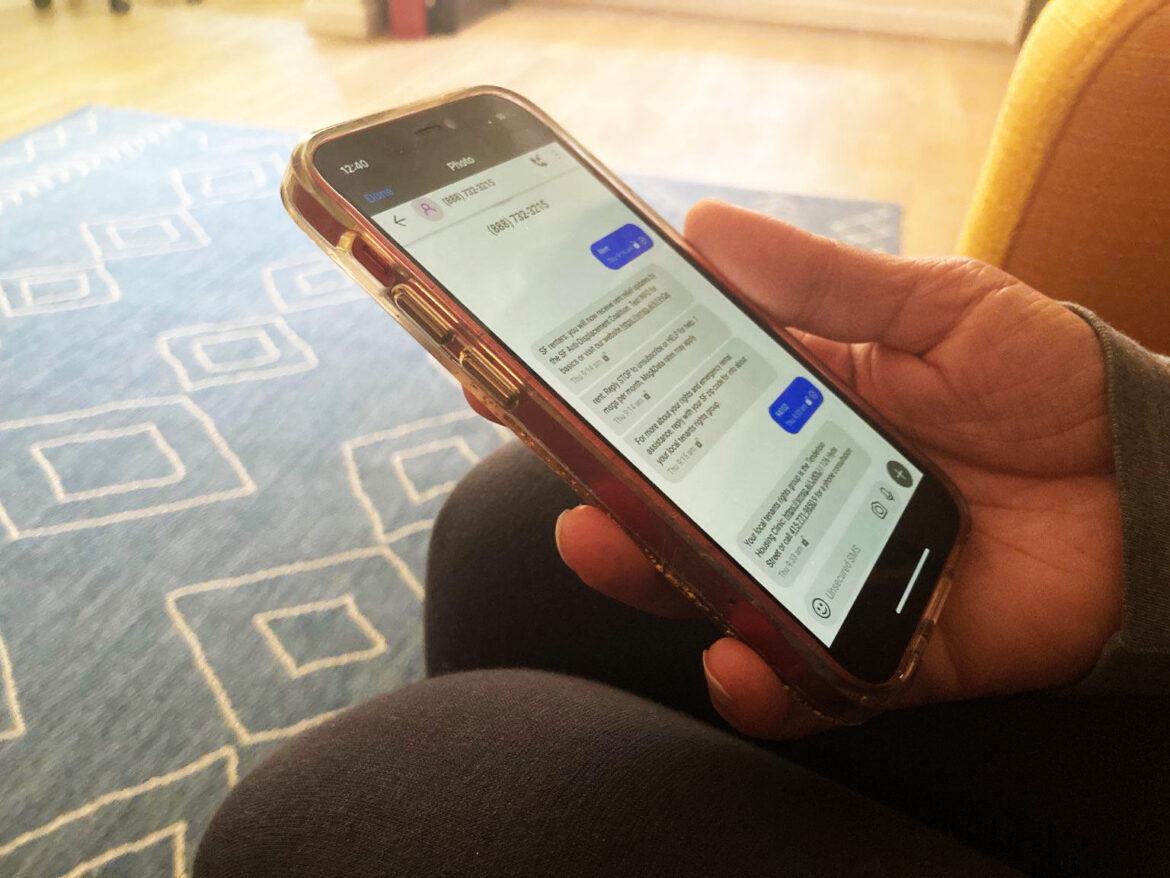Please read this article by the LA Times and rationally weigh up the logic:
We've been recently promoting resources for people facing illegal evictions. This article and our comment is only referencing illegal evictions: Irrelevant of whether you like landlords or appreciate the landlord featured in the article, when you signed a lease you honored an agreement and you paid rent. During the pandemic when California came to a crashing halt, it was understandable if you couldn't afford rent. But currently, with excessive unemployment offered alongside millions of jobs being listed, either way you're receiving income or have the means to...so there is no reason why you cannot pay even a portion of your monthly lease. Do not claim that you can't afford rent and food because there are thousands of Food Banks in our state - free food is in abundance. So be responsible, ethical and honor your lease agreement. Do the decent thing and retain your legal commitments. It's about morals here.
Article: Landlord sues L.A. for $100 million, saying anti-eviction law caused ‘astronomical’ losses
One of the region’s most prolific apartment builders has sued the city of Los Angeles over its COVID-19 eviction moratorium, saying his companies have experienced “astronomical” financial losses and are legally entitled to compensation from the city.
GHP Management Corp., which is owned by real estate developer Geoffrey Palmer,
said in its lawsuit that 12 buildings that it manages have experienced
more than $20 million in lost rental income as a result of the measure.
GHP, which filed the lawsuit along with several other Palmer companies,
expects that number to triple by the time the provisions of the
moratorium have expired.
The city enacted its temporary eviction
limits in March 2020, just as COVID-19 was triggering the shutdown of
businesses and throwing people out of work, barring building owners from
forcing out tenants who could show their inability to pay was caused by
the pandemic.
Palmer’s companies allege that the moratorium — first put in place by Mayor Eric Garcetti as an emergency order, then approved as an ordinance
by the City Council — violated the “takings clause” established in the
5th Amendment, which says private property shall not be taken for public
use without “just compensation.”
Palmer’s companies said they are entitled to compensation of more than $100 million.
“While
the eviction moratorium ostensibly protects tenants who are unable to
pay rent due to circumstances related to the COVID-19 pandemic, it
arbitrarily shifts the financial burden onto property owners, many of
whom were already suffering financial hardship as a result of the
pandemic and have no equivalent remedy at law,” said the lawsuit, which
was filed last week.
GHP Management, a property management company, is a subsidiary of G.H. Palmer Associates, which owns more than 15,000 apartments
in Southern California, according to the company’s website. G.H. Palmer
Associates is owned in turn by Palmer, a businessman known for
developing beige apartment blocks in and around downtown Los Angeles
with Mediterranean features and Italian names — Medici, Lorenzo, Piero.
Asked about the filing, City Atty. Mike Feuer defended the city’s
handling of the moratorium, saying his office wrote a “sound and lawful
ordinance” that has kept tenants from becoming homeless during the
pandemic.
“We defeated a previous attack on these crucial protections and will
vigorously defend the ordinance again,” Feuer said in a statement.
Palmer’s filing comes less than two months after Gov. Gavin Newsom extended the
state’s own eviction moratorium until Sept. 30, offering to cover 100%
of the back rent and utilities owed by many low-income residents whose
finances were hurt by the COVID-19 pandemic.
Under the program,
both renters and landlords may seek relief. Landlords seeking aid must
provide verification from their tenants that their income is low enough
to qualify for financial aid, according to the state’s website.
In February, the city’s Housing and Community Investment Department reported
that it distributed more than $98 million in subsidies to renters whose
households were affected by the COVID-19 pandemic in 2020. Of that
total, 56% was paid to landlords and the other 44% went directly to
tenants.
Tracy Jeanne Rosenthal, who is a member of the Los
Angeles Tenants Union, said the state’s relief program shows that Palmer
will “receive every dollar that he is owed.” Still, Rosenthal said she
does not believe he is entitled to that money.
“I am not at all
convinced that his right to profit by means of passive income should
take precedence over the very lives of tenants in Los Angeles whose
incomes were severed by the pandemic and by public health orders that
directed them to isolate and quarantine,” she said.
Rosenthal and
other organizers for renters’ rights have argued that the city’s law was
not a true moratorium, since it did not prohibit building owners from
filing eviction cases in court. In many cases, she said, tenants simply
moved out of fear instead of fighting those cases, or lost in court
after failing to make a defense.
Palmer is a major donor to the Republican Party and a player
in local, state and national politics. So far this year, he has put at
least $200,000 into the recall committee targeting Newsom and at least
$110,000 into the effort to recall Los Angeles County Dist. Atty. George
Gascon, according to state records.
Palmer hosted a fundraiser for President Trump in 2019 and, a year later, was identified by The Times as one of Trump’s top donors in California.
Larry
Gross, executive director of the Coalition for Economic Survival, said
Palmer’s lawsuit, if successful, would “wreak havoc” on the city,
siphoning away money from basic city services and throwing into question
efforts to keep both COVID-19 and homelessness under control.
“This
is both an economic and a health issue to ensure that people can
maintain the roofs over their heads right now,” said Gross, whose group
advocates for tenants’ rights.
Attorneys for GHP and Palmer’s other companies did not respond to an
inquiry from The Times. In their filing, those lawyers said the eviction
moratorium had led to more than $2.7 million in rent losses at Palmer’s
Medici project, a 627-unit apartment in downtown Los Angeles; nearly
$2.8 million at the Da Vinci, a 526-unit complex along the 101/110
Freeway interchange; and nearly $3.9 million at Summit at Warner Center,
a 760-unit apartment property in Woodland Hills.
Because of the
city’s restrictions, lenders have refused to finance or refinance the
loans on the properties managed by GHP, causing additional economic
harm, the plaintiffs said in their lawsuit. In addition, building owners
have been required to pay for electricity and other utilities in units
where they are not receiving rental income, the filing said.
Palmer’s companies contend that they will have little success in
recouping their losses from their tenants after the one-year grace
period that follows the end of the city’s COVID-19 emergency.
“The city orchestrated a regulatory regime designed to provide a
compulsory and de facto rent forgiveness to be foisted on landlords
throughout the city,” the lawsuit states.
A Garcetti spokesman did not immediately have a comment on the case.
Palmer
has tangled with the city in court before. More than a decade ago, he
persuaded a Superior Court judge to overturn the city’s “inclusionary
housing” rules, which required that developers near downtown offer a
specified percentage of affordable housing as part of their residential
projects.
Palmer’s legal victory halted the city’s momentum in
trying to build affordable housing in the area, said Gross, the tenants’
rights advocate.
“His hands are not clean in regards to the housing crisis we are now facing,” Gross said.

The Orsini, left, is one of several
buildings that have incurred financial losses as a result of an eviction
moratorium, according to a new lawsuit filed against the city of Los
Angeles.
(Luis Sinco / Los Angeles Times)





